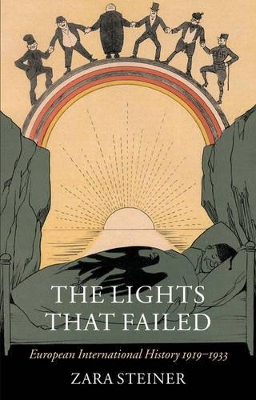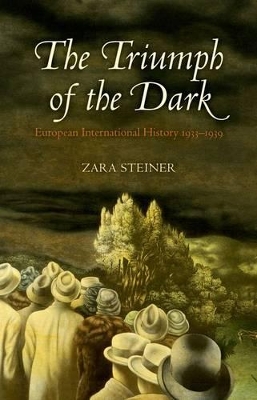Oxford History of Modern Europe
2 total works
The peace treaties represented an almost impossible attempt to solve the problems caused by a murderous world war. In The Lights that Failed: European International History 1919-1933, part of the Oxford History of Modern Europe series, Steiner challenges the common assumption that the Treaty of Versailles led to the opening of a second European war. In a radically original way, this book characterizes the 1920s not as a frustrated prelude to a second global conflict
but as a fascinating decade in its own right, when politicians and diplomats strove to re-assemble a viable European order. Steiner examines the efforts that failed but also those which gave hope for future promise, many of which are usually underestimated, if not ignored. She shows that an
equilibrium was achieved, attained between a partial American withdrawal from Europe and the self-imposed constraints which the Soviet system imposed on exporting revolution. The stabilization painfully achieved in Europe reached it fragile limits after 1925, even prior to the financial crises that engulfed the continent. The hinge years between the great crash of 1929 and Hitler's achievement of power in 1933 devastatingly altered the balance between nationalism and internationalism. This
wide-ranging study helps us grasp the decisive stages in this process.
In a second volume, The Triumph of the Night Steiner will examine the immediate lead up to the Second World War and its early years.
but as a fascinating decade in its own right, when politicians and diplomats strove to re-assemble a viable European order. Steiner examines the efforts that failed but also those which gave hope for future promise, many of which are usually underestimated, if not ignored. She shows that an
equilibrium was achieved, attained between a partial American withdrawal from Europe and the self-imposed constraints which the Soviet system imposed on exporting revolution. The stabilization painfully achieved in Europe reached it fragile limits after 1925, even prior to the financial crises that engulfed the continent. The hinge years between the great crash of 1929 and Hitler's achievement of power in 1933 devastatingly altered the balance between nationalism and internationalism. This
wide-ranging study helps us grasp the decisive stages in this process.
In a second volume, The Triumph of the Night Steiner will examine the immediate lead up to the Second World War and its early years.
In this magisterial narrative, Zara Steiner traces the twisted road to war that began with Hitler's assumption of power in Germany. Covering a wide geographical canvas, from America to the Far East, Steiner provides an indispensable reassessment of the most disputed events of these tumultuous years.
Steiner underlines the far-reaching consequences of the Great Depression, which shifted the initiative in international affairs from those who upheld the status quo to those who were intent on destroying it. In Europe, the l930s were Hitler's years. He moved the major chess pieces on the board, forcing the others to respond. From the start, Steiner argues, he intended war, and he repeatedly gambled on Germany's future to acquire the necessary resources to fulfil his continental ambitions. Only
war could have stopped him-an unwelcome message for most of Europe. Misperception, miscomprehension, and misjudgment on the part of the other Great Powers leaders opened the way for Hitler's repeated diplomatic successes.
It is ideology that distinguished the Hitler era from previous struggles for the mastery of Europe. Ideological presumptions created false images and raised barriers to understanding that even good intelligence could not penetrate. Only when the leaders of Britain and France realized the scale of Hitler's ambition, and the challenge Germany posed to their Great Power status, did they finally declare war.
Steiner underlines the far-reaching consequences of the Great Depression, which shifted the initiative in international affairs from those who upheld the status quo to those who were intent on destroying it. In Europe, the l930s were Hitler's years. He moved the major chess pieces on the board, forcing the others to respond. From the start, Steiner argues, he intended war, and he repeatedly gambled on Germany's future to acquire the necessary resources to fulfil his continental ambitions. Only
war could have stopped him-an unwelcome message for most of Europe. Misperception, miscomprehension, and misjudgment on the part of the other Great Powers leaders opened the way for Hitler's repeated diplomatic successes.
It is ideology that distinguished the Hitler era from previous struggles for the mastery of Europe. Ideological presumptions created false images and raised barriers to understanding that even good intelligence could not penetrate. Only when the leaders of Britain and France realized the scale of Hitler's ambition, and the challenge Germany posed to their Great Power status, did they finally declare war.

